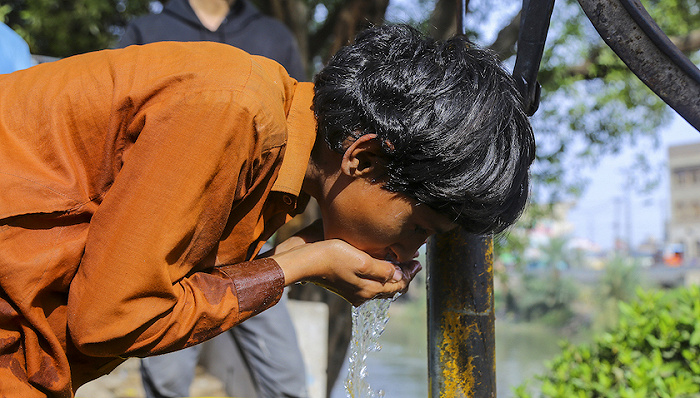The first United Nations conference on water resources in 50 years is being held.
On March 22 -24, more than 6,700 delegates gathered in new york to attend the mid-term comprehensive review meeting on the implementation of the United Nations Decade for Action on Water and Sanitation in 2023 (2018-2028). The last such meeting was held in Argentina in 1977. Since then, the population of the earth has doubled to more than 8 billion, and the demand for water has soared.

According to United Nations data, at the current rate, by 2030, 1.6 billion people will lack safe drinking water and 2.8 billion people will lack water sanitation facilities. According to the report released by the Global Water Economic Commission (GCEW) last week, by 2030, the global fresh water supply will be short by 40%, and the over-utilization of water resources, pollution and climate problems all threaten the global water supply. According to the report, countries must manage water resources as a global common interest.
Although water plays a key role in climate, food and national security, it has long been marginalized in international negotiations. As the host countries of the conference, the Netherlands and Tajikistan hope that the conference will become a “Paris moment” of water resources and reach an agreement similar to the Paris climate agreement.
On March 24th, new york time, the conference will launch the Water Action Agenda. The initiative comes from voluntary commitments of dozens of governments, enterprises, non-governmental organizations and others. It is not binding and has few specific financial commitments. However, some participating countries hope that this issue can be further strengthened at the seven-month United Nations Climate Conference on the basis of the Water Action Agenda.
Corosi, President of the United Nations General Assembly, said at the opening ceremony that the international community must realize that water resources are the common interest of the whole world, and countries should adjust their policies, legislation and financing direction accordingly.
At the same time, the White House announced that it would follow the water action agenda and announce a series of commitments of up to $49 billion. According to the Guardian, there are few details about this commitment except that 700 million US dollars in the aid package announced earlier will be used to help 22 key countries. In the middle of last year, Biden’s administration regarded the shortage of water resources as the national security issue of the United States for the first time, saying that foreign water pollution or water shortage may threaten the national security of the United States, and announced the “action plan” for global water security. In the bipartisan infrastructure bill passed last autumn, the US government plans to invest 63 billion US dollars to solve domestic water pollution, increase drinking water supply and improve drought resistance.
Insiders pointed out that the main impact of the climate crisis is through the water cycle, and the protection and management of water resources cannot be separated from climate change. Charles Iceland, director of global water resources at the World Resources Institute, said that if climate change is a shark, water is equivalent to its teeth. He said that different regions face different water problems, “either too much, too little or too dirty”. Even the United States, Australia and other rich countries are trying to cope with the changing reality of water resources, and poor countries are even unable to cope.
According to United Nations data, about 90% of climate impacts are related to water-too much, too little or too polluted-but only 3% of climate financing is currently used for water resources. At the meeting, UN Secretary-General Guterres warned that water is the core of the climate crisis, and droughts, floods and rising sea levels are becoming more and more terrible, “making our planet uninhabitable”.
The 28th United Nations Climate Conference will be held in November. As the host country, the United Arab Emirates is under pressure at this UN Water Conference, and many countries call for water resources to be included in the negotiation agenda of COP28. Advocates, NGOs and ministers from the Netherlands, Finland, France, Tajikistan and Egypt urged the UAE to formally include water resources in the four negotiation themes (mitigation, adaptation, financing and loss and damage).
“COP 28 needs to put water at the top of its agenda. It should be part of climate adaptation and mitigation, and this meeting must be included in the global list,” said Sumuvuori, deputy foreign minister of Finland.